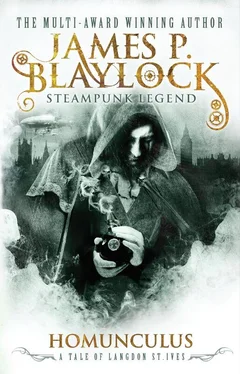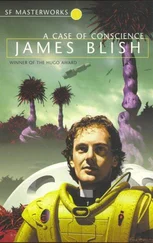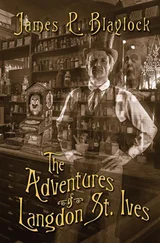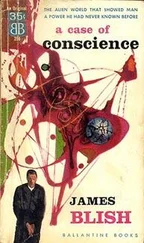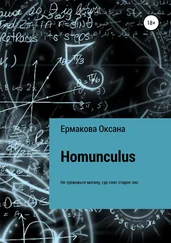James Blaylock - Homunculus
Здесь есть возможность читать онлайн «James Blaylock - Homunculus» весь текст электронной книги совершенно бесплатно (целиком полную версию без сокращений). В некоторых случаях можно слушать аудио, скачать через торрент в формате fb2 и присутствует краткое содержание. Жанр: sf_stimpank, на английском языке. Описание произведения, (предисловие) а так же отзывы посетителей доступны на портале библиотеки ЛибКат.
- Название:Homunculus
- Автор:
- Жанр:
- Год:неизвестен
- ISBN:нет данных
- Рейтинг книги:5 / 5. Голосов: 1
-
Избранное:Добавить в избранное
- Отзывы:
-
Ваша оценка:
- 100
- 1
- 2
- 3
- 4
- 5
Homunculus: краткое содержание, описание и аннотация
Предлагаем к чтению аннотацию, описание, краткое содержание или предисловие (зависит от того, что написал сам автор книги «Homunculus»). Если вы не нашли необходимую информацию о книге — напишите в комментариях, мы постараемся отыскать её.
Homunculus — читать онлайн бесплатно полную книгу (весь текст) целиком
Ниже представлен текст книги, разбитый по страницам. Система сохранения места последней прочитанной страницы, позволяет с удобством читать онлайн бесплатно книгу «Homunculus», без необходимости каждый раз заново искать на чём Вы остановились. Поставьте закладку, и сможете в любой момент перейти на страницу, на которой закончили чтение.
Интервал:
Закладка:
ELEVEN
Willis Pule shivered in the undergrowth that choked the empty streambed of a little tributary to the River Nidd. The willow and bracken was thick enough to keep out searching eyes — he’d lie low there until the train was a moment from pulling away toward London. The station was a five-minute dash to the south. He’d been a genius to buy his return ticket the day before. His goose would be cooked otherwise. They were scouring the countryside for him. But why, for the love of God? Surely not because of the affair at St. Ives’ manor. That would hardly have loosed such a lunatic mob. Perhaps it had something to do with the explosions that had followed his retreat. But for heaven’s sake, he had had nothing to do with that. Damn these country clowns, he thought to himself, peering above the foliage roundabout him. If he could manage it, he’d exterminate the lot of them. Some sort of infectious disease, perhaps — animated rats that fed on blood and were hopping with plague fleas.
He patted his nose gingerly, arranging the sagging bandages. He’d have torn them off, thrown them into a ditch, but the chemicals they’d been soaked in had lent his face an amber-blue tint that was startling and inexplicable. The bandages were less so. And more than that, they seemed to be having a positive effect. The skin on his face felt drawn and tight, and he’d long ago overcome his compulsion to retch at the smell of the anchovy paste. He tugged at the knots in the end of the bandages, loosened them, and pulled the whole works taut, tying it off once again.
He checked his pocketwatch. It was time to go. He’d simply have to brass it out — there was nothing else to be done, He could hardly sit in the bushes forever, and he’d be caught for sure if he set out down the road. He’d have liked to steal a cart — garrote the owner and make away with the man’s goods, but he was in a deep enough mire as it was. The cost of further mayhem might perhaps be greater than the profit.
He peered again over the bushes. Surely the mob had tired itself out long since. No one, apparently, was about, save a thin man in knee breeches who cleaned cod at a trough behind a fish shop. Pule stepped through a gap in the shrubbery and strode away purposefully, not at all, he fancied, like a man fearful of pursuit. The cod man slashed away at his fish, oblivious to him. Pule rounded the corner of the fish shop, saw that the street before him was empty, and bolted for the train station, one hand pressed to his head to keep the bandages from flying apart.
A block from the station he slowed to a walk. He had enough time. It was dangerous to call attention to himself so. There was the open platform, the train chuffing on the track. Some few people climbed aboard. A tired-looking man in a mustache sold scones and coffee through the windows. Pule would kill for a scone — literally, he thought to himself. He was in a regrettable mood, and hunger put an edge on it.
There were the steel steps into the second-class car, ten feet ahead of him. No one shouted. No one menaced him. He snatched a newspaper from a boy idling on the platform, sprang into the car, found an empty compartment, and hid behind the newspaper. He’d stay there, he decided, until they were at least halfway to London.
The train edged forward in a hiss of escaping steam, then lurched to a stop. Footsteps rang on the platform. Pule peeked past the edge of his newspaper, horrified to see Langdon St. Ives and his manservant climbing into the train car. Damn! He raised the newspaper. If the door to his compartment opened he’d go out through the window. What else could he do? He hadn’t any weapons. Next time he wouldn’t be caught weaponless. And there would be a next time.
Narbondo would rail at him for having failed to find the papers. It had taken hours to wring Kraken clean of information. Liquor had done it far more neatly than had torture — although Pule rather preferred the latter; since they had no idea whether Kraken had anything to offer them anyway, torture seemed pretty much an end in itself. He’d been a determined old sod, though, and a sorry one, but he’d divulged it all in the end, weeping into his cups. Pule smiled behind his newspaper. He wondered idly whether St. Ives had taken a compartment on his car or had gone along to the next. What did it matter?
Pule was overcome by a sudden idea. He could slip off the train, return to St. Ives’ estate, and in the master’s absence, ransack it. Torch the place, if it came to it. He’d been hasty — was on the edge of missing his chance. He arose, casting down his paper, when the train lurched forward again, dumping him backward onto the seat. It seemed certain that the train was at last underway. Pule thrust open the compartment door and shoved out his head, only to see some few yards before him the back of St. Ives’ servant, who stood in the aisle, speaking to his employer through an open door. Pule slid back in as the train lurched once again to a stop. Was he fated to stay on the damned train? To be robbed of a second chance? He shrugged. What did it matter, after all? It was Narbondo who would profit from his returning to the manor. It was always Narbondo who profited.
“Hot scones!” came a cry from out the window. “Coffee and tea!”
Pule reached out a shilling. The flour-speckled scone seller shrieked and dropped his pastries, tray and all, onto the platform. Coffee flew. The man shrieked again. “The halien!” he cried, falling backward. “The bloody halien!”
A window slid open in the next compartment. “Brinsing!” shouted a voice. A head shoved out into the morning. Pule, casting secrecy onto the scrapheap, peered out at it. Langdon St. Ives stared back, aghast, speechless. The train bolted. Pule jumped for the door. The scone seller continued to shriek. Hasbro rushed at Pule. Pule grabbed the knob of a compartment door and flung it open into the face of his attacker, throwing his shoulder into it in an effort to knock the man down. Behind him in yet another compartment sat a frail old woman, wide-eyed with terror at the sight of the wrapped Pule. Her feet were propped on a steamer trunk, too heavy, no doubt, to be hefted onto the rack.
Pule set his feet against the doorjamb, his back against the door open in the aisle, and dragged the trunk from beneath the woman’s feet, cursing it, cursing her, cursing St. Ives. He wedged the trunk against the open door, realizing as he did so that his efforts weren’t worth the time he was wasting. Shouting a parting curse, he leaped out the end of the car and into the next, slowing a bit, wondering where on earth a man could hide on a train.
Trees and meadows shot past along the tracks. If it came to it, he thought, he’d leap for it. Perhaps he should jump now, before they disentangled themselves from the door and trunk. They’d never suppose him rash enough to attempt such a thing. But the countryside was flying by wonderfully quickly — dangerously so. Pule strode along through the next car and the next, into a third-class car comprising two parallel rows of wooden benches facing the front of the train. The car was empty but for a single man in a chimney pipe hat who dozed in a seat on the aisle.
In his lap was a Keeble box. Pule nearly strangled. He grabbed a seat for support, gripped by vertigo. What did this mean? What weird offspring of fate had come to meet him so peculiarly here? A shouting arose behind him, along with the splintering sound of wood tearing. If he wasn’t quick he’d fail. And the fault would be his own. He looked about him, barely breathing. Beneath the seats were metal baggage racks in various states of disrepair. He grasped a section of iron bar that had come unbolted and wrenched at it. He waited for the sound of the door slamming open behind, for the shouting to commence, for the man with the box — quite possibly in league with St. Ives — to awaken and cut off his escape. The bar clanked to the floor. Pule seized it as the sleeper stirred. The man opened one eye as Pule flailed at him, a cry wrenching out of his lungs. The iron bar struck the man’s forehead and seemed to settle into it, as if he’d hit a pudding with a wooden spoon. Pule dropped the bar and caught the box as the man fell forward. The door burst in behind him. He was out in a trice, leaping in great hopping strides through a succession of cars, out, finally, into the morning air with no place left to flee. He braced his back against the door, holding it tight. His pursuers clattered hollering up behind. Sheep winked by on a sailing meadow.
Читать дальшеИнтервал:
Закладка:
Похожие книги на «Homunculus»
Представляем Вашему вниманию похожие книги на «Homunculus» списком для выбора. Мы отобрали схожую по названию и смыслу литературу в надежде предоставить читателям больше вариантов отыскать новые, интересные, ещё непрочитанные произведения.
Обсуждение, отзывы о книге «Homunculus» и просто собственные мнения читателей. Оставьте ваши комментарии, напишите, что Вы думаете о произведении, его смысле или главных героях. Укажите что конкретно понравилось, а что нет, и почему Вы так считаете.
